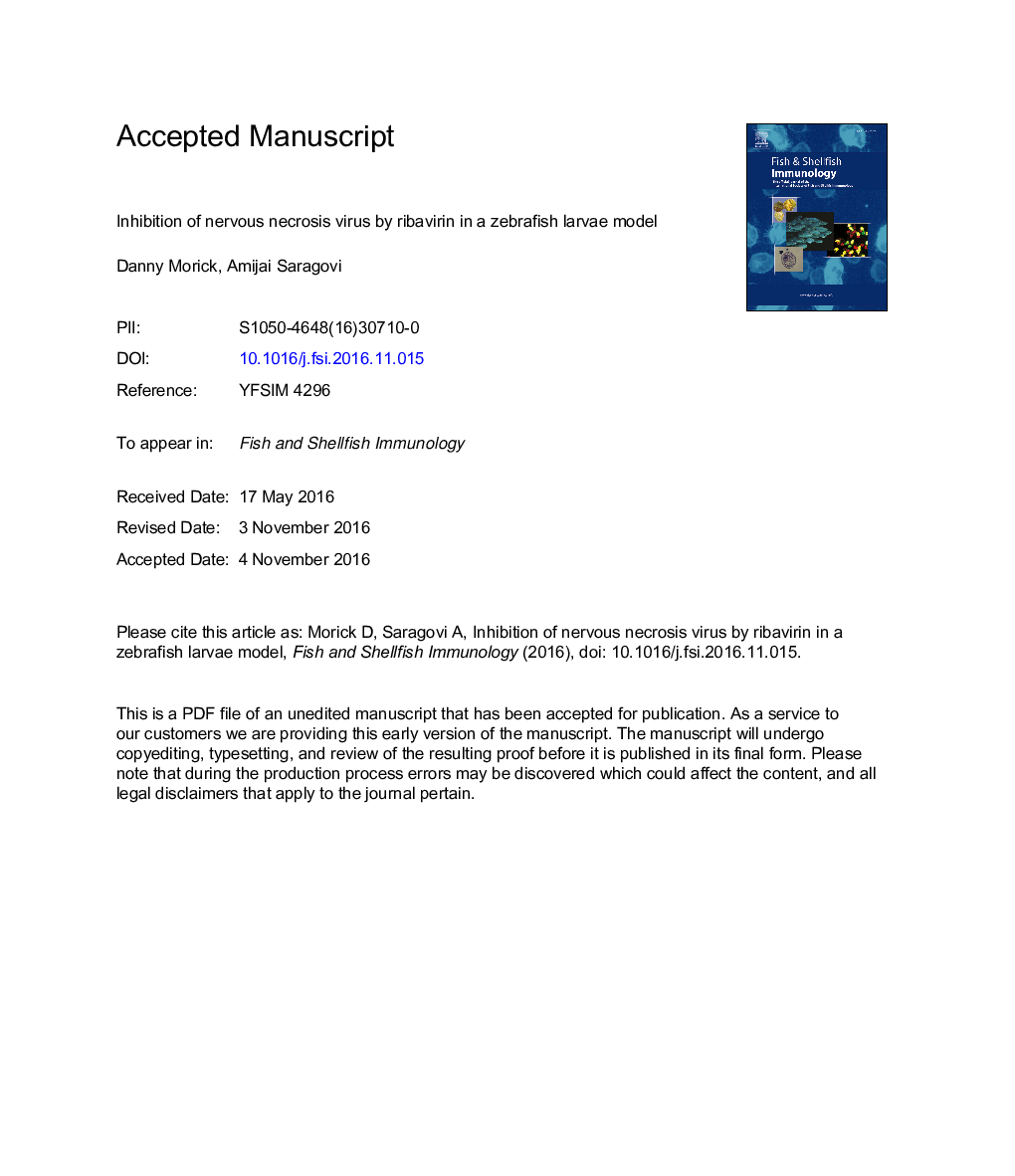| Article ID | Journal | Published Year | Pages | File Type |
|---|---|---|---|---|
| 5541019 | Fish & Shellfish Immunology | 2017 | 33 Pages |
Abstract
The guanosine analog ribavirin is a broad-spectrum antiviral drug, mostly used in human clinical practice. It has in vitro and in vivo activity against a broad range of RNA and DNA viruses. Here, we report that treatment of zebrafish larvae with ribavirin prior to infection with nervous necrosis virus (NNV) significantly reduces the mortality caused by the virus during the first 10 days post-infection. The RNA genome of NNV harvested from ribavirin-treated infected larvae contains three synonymous and one single non-synonymous mutation, resulting in the replacement of a serine codon with a glycine codon in the RNA-dependent RNA polymerase gene. Adding increasing amounts of guanosine to ribavirin prior to larvae infection did not impede the antiviral activity. Ribavirin treatment of uninfected larvae reduces the basal level of IFNγ, but increases the level of IL-1β mRNA expression. Furthermore, infecting larvae with NNV following ribavirin treatment reduces the expression levels of IFNγ, IFN-I, Mx, and TNF-α genes, while the expression of IL-1β is increased. These results suggest that cytokine modulation plays an important role in the activity of ribavirin against NNV. Mortality of more than 40 species of teleost fish, mostly larvae and juveniles, from NNV is a major obstacle in hatcheries, and impedes the supply of young fish to farms. Hence, cost-effective ribavirin treatment should be considered as an efficient means to reduce the peril of NNV.
Related Topics
Life Sciences
Agricultural and Biological Sciences
Aquatic Science
Authors
Danny Morick, Amijai Saragovi,
